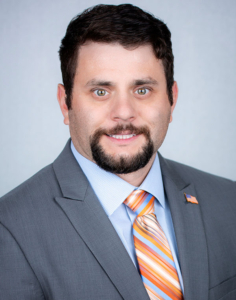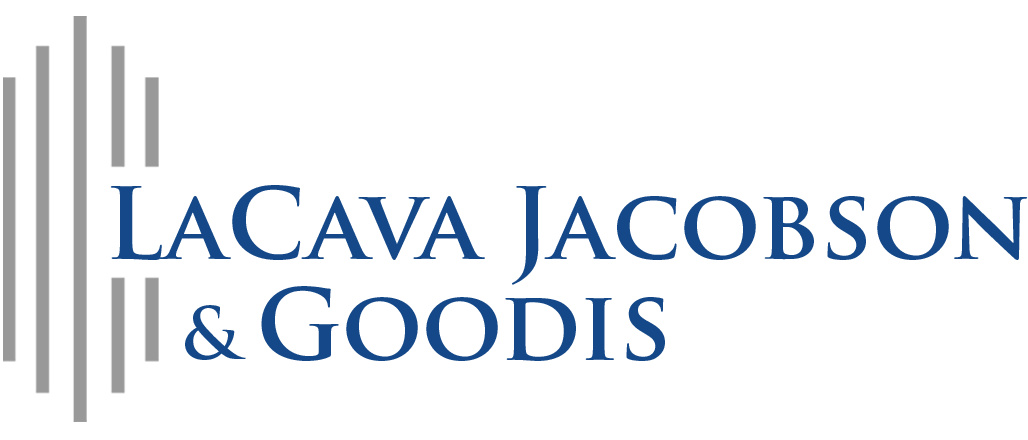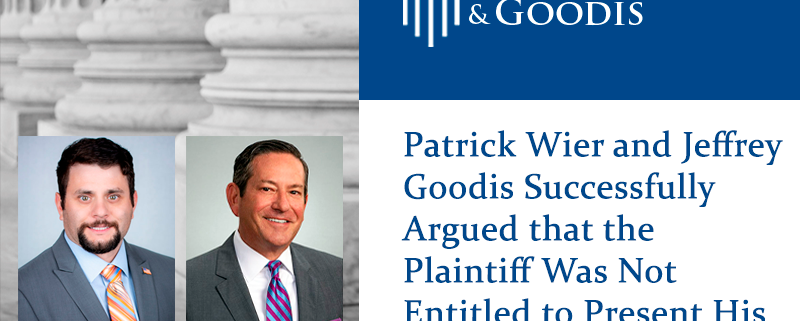Patrick Wier and Jeffrey Goodis Successfully Argued that the Plaintiff Was Not Entitled to Present His Case to the Jury

 In a case involving allegations of prosecutorial misconduct, Patrick Wier and Jeffrey Goodis successfully argued to both the Trial Court and the Second District Court of Appeal that the Plaintiff was not entitled to present his case to the jury because of the protections of Qualified Immunity. At the Trial Court level, they argued that the Plaintiff’s claim did not present any issues of material fact that could provide a reasonable basis to allege that the Defendant acted in a manner that was plainly incompetent or in knowing violation of the law when he performed his duties as an Assistant State’s Attorney. One of the issues argued was whether bad faith, including alleged legal malice, as an element of malicious prosecution, was sufficient to override a prosecutor’s immunity. Mr. Wier and Mr. Goodis argued that the prosecutor’s conduct was in good faith and that based on the knowledge of the facts at the time of filing of the Information, even if some investigative activity was performed, the prosecutor’s actions did not amount to bad faith as sometimes a prosecutor could make a decision that would later be questioned, or a victim could choose not to further pursue his or her claim, and neither would be sufficient to show the prosecutor acted in knowing violation of the law. They also argued that the Plaintiff had violated the victim’s right to custody several times prior to the date on which the Information was filed. The Trial Court entered an Order granting Final Summary Judgment in favor of the Defendant. Upon Plaintiff’s appeal of this decision, Mr. Wier and Mr. Goodis argued that the Trial Court’s decision was correct. The Second District Court of Appeal agreed and affirmed the Trial Court’s decision.
In a case involving allegations of prosecutorial misconduct, Patrick Wier and Jeffrey Goodis successfully argued to both the Trial Court and the Second District Court of Appeal that the Plaintiff was not entitled to present his case to the jury because of the protections of Qualified Immunity. At the Trial Court level, they argued that the Plaintiff’s claim did not present any issues of material fact that could provide a reasonable basis to allege that the Defendant acted in a manner that was plainly incompetent or in knowing violation of the law when he performed his duties as an Assistant State’s Attorney. One of the issues argued was whether bad faith, including alleged legal malice, as an element of malicious prosecution, was sufficient to override a prosecutor’s immunity. Mr. Wier and Mr. Goodis argued that the prosecutor’s conduct was in good faith and that based on the knowledge of the facts at the time of filing of the Information, even if some investigative activity was performed, the prosecutor’s actions did not amount to bad faith as sometimes a prosecutor could make a decision that would later be questioned, or a victim could choose not to further pursue his or her claim, and neither would be sufficient to show the prosecutor acted in knowing violation of the law. They also argued that the Plaintiff had violated the victim’s right to custody several times prior to the date on which the Information was filed. The Trial Court entered an Order granting Final Summary Judgment in favor of the Defendant. Upon Plaintiff’s appeal of this decision, Mr. Wier and Mr. Goodis argued that the Trial Court’s decision was correct. The Second District Court of Appeal agreed and affirmed the Trial Court’s decision.



 litigation and appeals in all Florida state and federal courts.
litigation and appeals in all Florida state and federal courts.